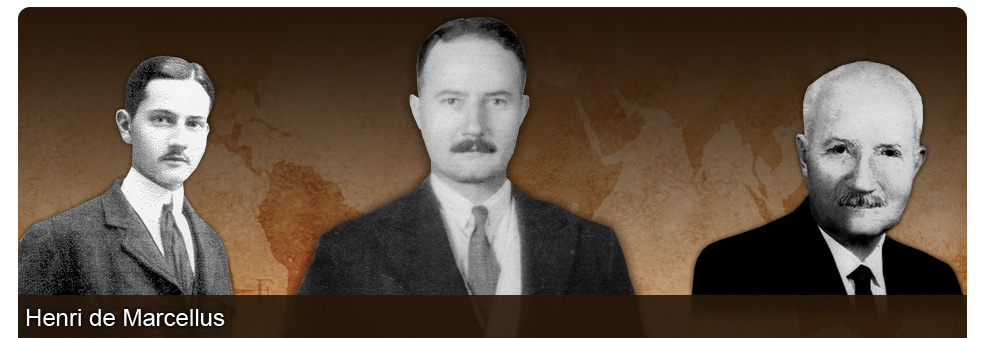
Henri de Marcellus was a towering figure in every way – tall, handsome, with an encyclopaedic knowledge of world history, geography, anthropology and the stock market. Having studied law and international affairs at the Académie des Sciences Politiques in Paris and Anthropology at the Musée de l’homme, he served with distinction in the First World War. As a Count from a family of many centuries of officers, and after serving with distiction as an enlisted soldier, he could have been promoted to officer, and was offered this option, but he chose instead to continue to fight in the trenches – not least because of his affection and admiration for the American soldiers he encountered, some of whom remained lifelong friends. He received the Croix de Guerre for courage at the epic battle of Verdun, where he survived a chlorine gas attack.
In the manner of a European aristocrat of a type which has completely vanished, he regarded his extraordinary wealth of knowledge and intellectual resources as ‘normal’, and not something to be turned into a profession. Hence he would retreat to his study whenever possible in order to read, write, and correspond with some of the leading scholars – particularly in the field of anthropology – of the 20th century. In the late afternoon he would habitually take his constitutional with his dog and cane, often accompanied by daughter Juliette, and talk about some of these facts – “des choses intéressantes.” These ‘choses intéressantes’ would also surface over the dinner table. But his study was packed with all his recherches and writings.
In 2008, three decades after her father’s death, after much sorting, compilation and translation, Juliette de Marcellus edited and oversaw the publication of her father’s unique and invaluable magnum opus, The Atlas of Man, which superimposes the migrations of man on the dramatic changes in Earth’s climate through the four great climatic ages over the past 900,000 years. This work, which has been universally acclaimed by museums, universities and those concerned with climate change, was published under the auspices of the Vollmer Educational Foundation.
Juliette has also written and published a book telling the story of her parents’ extraordinary lives. The book, entitled Rose & Henri - For richer, For poorer, has proved popular with all those interested in European and American family life in the first half of the twentieth century, and especially those whose families lived through the two world wars and the Great Depression. Her book vividly describes the sights and events of the early 20th century in England and France, and the United States during the interwar and post-war years.
Both books, Rose and Henri and The Atlas of Man, are currently available on Amazon.

